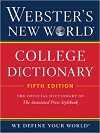Mr. Inspector
SAWHORSE
There is an exception for door hardware in ICC/ANSI !117.1-2009 for locks only for security purposes. When is a lock not only for security purposes? I thought the whole idea of a lock is for security.
Your premier resource for building code knowledge.
This forum remains free to the public thanks to the generous support of our Sawhorse Members and Corporate Sponsors. Their contributions help keep this community thriving and accessible.
Want enhanced access to expert discussions and exclusive features? Learn more about the benefits here.
Ready to upgrade? Log in and upgrade now.
Privacy
Safety chain exception for hotel room doors?

I sometimes sleep in my office, but that doesn't make it a sleeping unit. Just because someone may use something for another purpose beyond what the code may state, doesn't mean that the code requirements for that other use wil apply.
YourDictionary definition and usage example. Copyright © 2018 by LoveToKnow Corp
noun
pl. -·ties
- the state of being or feeling secure; freedom from fear, anxiety, danger, doubt, etc.; state or sense of safety or certainty
- something that gives or assures safety, tranquillity, certainty, etc.; protection; safeguard
- protection or defense against attack, interference, espionage, etc.: funds for national security
- protection or defense against escape: a maximum-security prison
- procedures to provide such protection or defense
- an organization or department whose task is protection or safety, esp. a private police force hired to patrol or guard a building, park, or other area: if you see an intruder, call security
- something given as a pledge of repayment, fulfillment of a promise, etc.; guarantee
- a person who agrees to make good the failure of another to pay, perform a duty, etc.; surety
- any evidence of debt or ownership; esp., a stock certificate or bond: usually used in pl.
If you want privacy you need to feel secure, free from anxiety,
- When my wife uses a single use rest room at a truck stop she wants the security, so no one robs or rapes her, she told me she doesn't care if someone sees her. Some people can use the lock for security and some for privacy and some for both.
That makes sense. Thank you.No need to ask Noah Webster, the language of the exception makes clear the intent...
"EXCEPTION: Locks used only for security purposes and not used for normal operation shall not be required to comply with Section 404.2.6."
A 'night latch' is not used for 'normal operation' but rather to provide an extra layer of security for those inside the room or space. The lever or knob is for 'normal operation' to go in and out of the room.
No one 'needs' to use the night latch, every one 'needs' to use the lever or knob.
If it has to do with door hardware
“””””””Someone “””””has wrote about it
The 2009 edition of ICC A117.1 exempts locks used only for security purposes that are not used for normal operation; this exemption is also included in the IBC and could potentially be applied to retrofit security devices. But this exception does not exist in the 2010 ADA standards, so these standards would not allow classroom barricade devices to be mounted at the floor or at the top of the door—above or below the allowable range. The mounting-height exception applicable to locks used only for security purposes has been removed from Section 404.2.6 of ICC A117.1-2017. However, Section 404.1 still exempts doors designed to be operated only by security personnel from several requirements – including the required mounting height.
https://idighardware.com/2018/05/decoded-upcoming-accessibility-changes/
No need to ask Noah Webster, the language of the exception makes clear the intent...
"EXCEPTION: Locks used only for security purposes and not used for normal operation shall not be required to comply with Section 404.2.6."
A 'night latch' is not used for 'normal operation' but rather to provide an extra layer of security for those inside the room or space. The lever or knob is for 'normal operation' to go in and out of the room.
No one 'needs' to use the night latch, every one 'needs' to use the lever or knob.
